
Empowering women starts right in our families, workplaces, and neighbourhoods. Write a note of thanks to a mentor that encouraged you along your lives journey, pick up coffee for a mom who’s struggling to balance it all, or tell your own sister, daughter, or mother how much you appreciate them.
70 percent of the worlds’ poor are women, which is an unacceptable number. On International Women’s day join our vision of a world where everyone has the choice to be free from extreme poverty.
Through meaningful collaboration, we can help women advance and unleash the limitless potential they offer to economies the world over. Will you empower another on International Women’s Day 2019 and donate to ‘We Matter Too’ so that we can continue to help mentor and provide business training and micro-loans to these worthy women entrepreneurs?
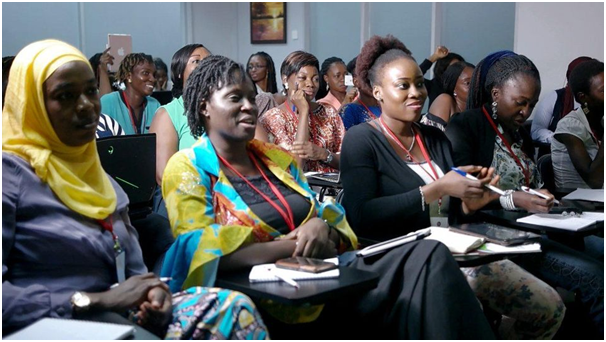 Over 80% of our business owners are women. Why is this important? Seven out of ten of the world’s hungry are women and girls. According to the UN World Food Program findings, women and girls are most affected by neglect in rural, poverty-stricken areas. In East Africa, women are more likely to be illiterate, perform unpaid work and eat less in lean times than men. However, when women are financially empowered, they prioritize things like health care, nutritious food, and education that benefit their families and communities. Increasing the bargaining power of women creates a virtuous cycle as female spending supports the development of human capital, which in turn fuels current and future economic growth. Successful women entrepreneurs also strengthen social justice in the communities where they live.
Over 80% of our business owners are women. Why is this important? Seven out of ten of the world’s hungry are women and girls. According to the UN World Food Program findings, women and girls are most affected by neglect in rural, poverty-stricken areas. In East Africa, women are more likely to be illiterate, perform unpaid work and eat less in lean times than men. However, when women are financially empowered, they prioritize things like health care, nutritious food, and education that benefit their families and communities. Increasing the bargaining power of women creates a virtuous cycle as female spending supports the development of human capital, which in turn fuels current and future economic growth. Successful women entrepreneurs also strengthen social justice in the communities where they live.
Addressing multiple barriers simultaneously is the only way to overcome extreme poverty.
Empowering Women in Africa Through Microfinancing
Technology is changing the world of finance by encouraging innovation in the sector and creating new ways of thinking. In Africa, it is helping to tackle gender inequality by creating opportunities for equal and fair access to banking services and the development of regional and local communities. We are entering the advent of open banking, APIs, digitization and clever partnerships with FinTech service providers has meant that Africans are leading the way with early adoption of new technologies.
Yet, research has demonstrated that increasing women’s human capital is one of the most effective ways to reduce poverty. A slight increase in women’s assets, education and income has immediate positive multiplier effects such as increasing agricultural productivity and reducing child malnutrition. A McKinsey study claims that if women were involved in the economy to the same extent as men are, the world’s economy could grow by 26 percent by the year 2025.
In West Africa, for example, a few key results have been achieved in the context the West Africa Agricultural Productivity Program’s gender policy . Moreover, a working group on gender was established in October 2015, in the context of the ongoing review process of the ECOWAS Agricultural Policy (ECOWAP), to contribute to making the 2nd generation of ECOWAP national and regional agricultural investment plans gender sensitive. It is crucial to support these initiatives and the stakeholders involved to address gender inequalities when applicable. A promising area to start strengthening our gender-sensitivity is (informal) agri-food cross-border trade, as it is believed that West African women are largely in these activities. This implies being more explicit about gender imbalances, identifying policy measures that could be taken to address those and facilitate dialogue for uptake.
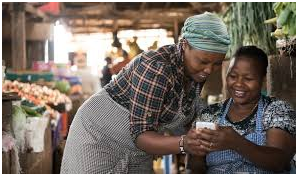 We lend small amounts of money to women who do not have access to traditional banking systems. When given microloans, these mothers can start or improve their own small businesses and better support themselves and their families. Microloans help women gain financial independence, save for the future, create jobs for friends and family, send children to school, … the list of benefits goes on.
We lend small amounts of money to women who do not have access to traditional banking systems. When given microloans, these mothers can start or improve their own small businesses and better support themselves and their families. Microloans help women gain financial independence, save for the future, create jobs for friends and family, send children to school, … the list of benefits goes on.
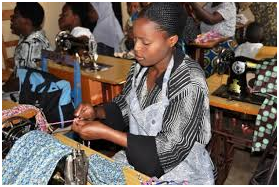 Many of the women working with us have had little to no education, and even fewer opportunities. We provide ongoing and personalized training and guidance appropriate to their situation. Our business record keeping and inventory tracking methods are simple, yet effective. The women we work become very excited when they realize that they can run a “proper” business and see for themselves because of their recordkeeping the growth and improvements they are making.Women are taught and encouraged in our business skills training courses to start their own saving account.
Many of the women working with us have had little to no education, and even fewer opportunities. We provide ongoing and personalized training and guidance appropriate to their situation. Our business record keeping and inventory tracking methods are simple, yet effective. The women we work become very excited when they realize that they can run a “proper” business and see for themselves because of their recordkeeping the growth and improvements they are making.Women are taught and encouraged in our business skills training courses to start their own saving account.
 Think about it. In many places in Sub-Saharan Africa there are more women than men. We have discovered that when women meet and discuss there is power and empowerment. Knowing that they are not alone in facing issues associated with extreme poverty gives these women hope for the future. They become more inspired to help other women in their community by sharing the knowledge and business skills they have learned.
Think about it. In many places in Sub-Saharan Africa there are more women than men. We have discovered that when women meet and discuss there is power and empowerment. Knowing that they are not alone in facing issues associated with extreme poverty gives these women hope for the future. They become more inspired to help other women in their community by sharing the knowledge and business skills they have learned.
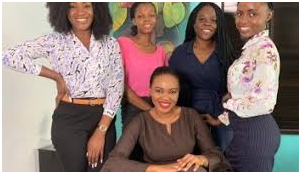 We dream of an Africa where every woman can read and writewithin the next twenty years; where woman and child are empowered enough to question what their leaders are doing; knows what the AU is doing and is able to participate it its activities and programs.In many places in Africa, women rarely hold public leadership roles. With their growing businesses, many of our clients become local leaders. They take on leadership roles in their lending groups and help encourage and mentor others. Women are joining local committees, facilitating meetings, raising their voices against injustices, and organizing community improvement programs.
We dream of an Africa where every woman can read and writewithin the next twenty years; where woman and child are empowered enough to question what their leaders are doing; knows what the AU is doing and is able to participate it its activities and programs.In many places in Africa, women rarely hold public leadership roles. With their growing businesses, many of our clients become local leaders. They take on leadership roles in their lending groups and help encourage and mentor others. Women are joining local committees, facilitating meetings, raising their voices against injustices, and organizing community improvement programs.
We build hope! Marriage before the age of 18 is a fundamental violation of human rights. Levels of child marriage are highest in sub-Saharan Africa, where nearly 4 in 10 young women. Many factors interact to place a child at risk of marriage, including poverty, the perception that marriage will provide ‘protection’, family honour, social norms, customary or religious laws that condone the practice, an inadequate legislative framework and the state of a country’s civil registration system. While the practice is more common among girls than boys, it is a violation of rights regardless of sex.
Progress in Africa to eradicate child marriages has gained momentum, as seen by the work done by Malawian chief Theresa Kachindamoto. According to UNICEF, by 2016, Chief Kachindamoto had annulled over 800 child marriages over a 3-year period in the Malawian Dedza district near Lake Malawi. Her goal was to ensure that children go back to school to get educated, as well as minimize abuse and health risks associated with early child marriage. By doing so, children are ensured to have a better chance of living a healthy life. This required her to enforce the law, much to the apprehension of traditionMeasures that Kachindamoto has put in place to ensure the cultural and economic empowerment of children, especially girls, includes paying their school fees or finding sponsors for them, and ensuring that children stay in school through a network of appointed mentorsalists, and to lobby with the Malawian government to change the marriageable age from 18 to 21.
Measures that Kachindamoto has put in place to ensure the cultural and economic empowerment of children, especially girls, includes paying their school fees or finding sponsors for them, and ensuring that children stay in school through a network of appointed mentors
Lessening the likelihood of violence through education.
Statistics show that there are over 200,000 battered women in Africa and half a million children exposed to domestic violence each year. AU Watch has a long history of reducing the damage caused by domestic violence, but wouldn’t it be better to prevent it all together?
We Matter Too is deepening and broadening educational offerings, legal aid, counselling, and training for our entire staff, to better serve our women and families. At our high schools and women’s centres, and in every facet of our organization, we provide opportunities for community members to understand all aspects of sexual harassment and ways to prevent violence against women. Our efforts in this area are evolving, and we welcome support that enables us to lay the groundwork for a more equitable society in Israel, while we continue to provide resources to those most in need.
Providing a refuge for women and children in need
• Established in Banjul, The Gambia, the Kairaba Center for Family Violence Prevention was the first women’s shelter in The Gambia.
• Dedicated staff and volunteers ensure the physical and emotional security for up to 30 residents at a time, while up to 150 women receive counselling each month.
• The Center also provides counseling to treatable male perpetrators, and has attained a 90 percent rehabilitation rate.
• Dedicated to helping residents re-enter the mainstream as independent women, the Center provides legal advice, including conciliation and clearly defined divorce agreements.
 Many cultural customs and traditions infringe on rights of women and children by subjecting them to abuse, as well as political and economic exclusion.Eradicating such customs in order to give girls a better future is the fulcrum of the work of the Women’s program of AU Watch.
Many cultural customs and traditions infringe on rights of women and children by subjecting them to abuse, as well as political and economic exclusion.Eradicating such customs in order to give girls a better future is the fulcrum of the work of the Women’s program of AU Watch.
We Matter Too has an extensive network of educational programs including high schools and youth villages. We empower women through higher educational opportunities with scholarships & grants.
When you make a donation to AU Watch, you are empowering women and helping to improve the lives of women, children and families in Africa. Your donations help support the health, wellness, education, and empowerment of women in Africa; they improve the lives of children from toddlerhood through high school; they help make our communities in Africa stronger!
Ways you can be a women’s rights advocate
• Raise your voice
• Know your rights and enforce it
• Get involved
• Help educate the next generation
• Join the conversation
• Donate to the cause
Become an Advocate
We Matter Too’ advocates are a network of volunteers who are committed to making an ongoing investment of time and energy on behalf of women in Africa. We do this by offering others in our personal network the opportunity to personally respond and connect to the needs of the African woman.
There are so many ways for someone to connect with a group of women in our network. Our women advocates can schedule coffee with friends, host dinner parties, plan events and so much more.
On average our advocates spend about 1-2 hours a week, including the time spent learning and preparing to talk about partnership. Being an advocate does require some time training, learning and networking with other advocates, but once you have the basics being an advocate can be integrated.
We are dedicated to serving women and children, the cornerstone and future of every society. From day-care to career training for at-risk teens to scholarships for women seeking careers in basic sciences and technology, ‘We Matter Too’ supports the vulnerable and removes obstacles to achieving the gender equalities. We offer all of this and more, opening new possibilities for the diverse communities of women, children, and families in Africa.
 Did you know that in sub-Saharan Africa, 80% of agricultural production is by smallholder farmers and that women do most of the work?Life for rural African women is a litany of burden and hardship. If you are from one of those communes you know what your mother, sister, aunt is going through.
Did you know that in sub-Saharan Africa, 80% of agricultural production is by smallholder farmers and that women do most of the work?Life for rural African women is a litany of burden and hardship. If you are from one of those communes you know what your mother, sister, aunt is going through.
We do not have the same rights as men. Often times, we have to juggle domestic duties and agricultural work – sowing, weeding and harvesting crops, but also making food for their families and collecting firewood and water. And it can be much harder for women to yield the same results on their farms as men do, as they often have more limited access to land, agricultural extension services and technologies.
And mind you we have to tend to the men all the time as well.
Empowering women is a central part of our work – and has been shown to have wider benefits as well. When women prosper, they tend to invest more in their homes and families, giving their children more nutritious food and keeping them healthy. In fact, the UN’s Food and Agriculture Organisation has estimated that if women were given the same access to productive resources as men, they could increase the yields on their farms by 20-30% – which would in turn reduce the number of hungry people in the world by around 12-17%.
Help us support girls and women in crisis. Millions of girls are subjected to abuse, child labour, trafficking, child marriage, and other offenses. Your gift will go where it’s needed most, protecting girls and women by equipping skilled, local staff to offer training, education, counselling, medical care, small business loans, and other programs that reach women and girls as well as boys — helping to end cycles of gender-based violence.
‘We Matter Too’ works to understand the challenges that women face in a local context and adapts programmes to fit these conditions. By opening up new opportunities for women, we help them to develop new streams of income, which helps to lift themselves out of poverty. This means:
• Involving women in the sale of produce at market, giving them more financial independence and a better idea of market prices so they can adapt their farming businesses accordingly.
• Setting up women’s savings and loans groups, so that women can build up good financial records and apply for loans from banks to build up their businesses.
• Running training sessions at times when women can attend them and providing crèche facilities.
“We are not here merely to make a living, but to enable the world to live more amply, with greater vision and a finer spirit of hope and achievement.” President Woodrow Wilson
 Hundreds of millionsof women are trapped in the cycle of poverty. Empowering all areas of life is the only way out. Many living in extreme poverty are abusedand isolated from their community. Handouts and begging help them to survive temporarily. Our solution addresses all their challenges, across eight areas of life, equipping them to overcome poverty with their own efforts—and for good.
Hundreds of millionsof women are trapped in the cycle of poverty. Empowering all areas of life is the only way out. Many living in extreme poverty are abusedand isolated from their community. Handouts and begging help them to survive temporarily. Our solution addresses all their challenges, across eight areas of life, equipping them to overcome poverty with their own efforts—and for good.
Small businesses can go a long way in empowering not only women, but all members of the community through providing jobs and opportunities for franchises.Through We AU Watchloans you can connect with hardworking female entrepreneurs who are waiting to realize their dream of building or expanding a successful business. A small loan is all they need. Even better, when the loan is paid off, your donated funds are recycled again and again to help more people and make a bigger impact.
Farming is one way where women in Africa are showing the men how to do it.
Because we only provide resources, not handouts, any donation you make is leveraged by our women to meet their own needs. Our program is economically efficient, allowing our donors to maximize their impact in partnership with one trusted organization.
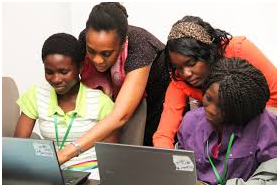 Did you know that over 600 million people in Sub-Saharan Africa living without electricity? So, opportunities are vast for improving the lives of people in the areas of health, well-being, and infrastructure. The sector is open to women entrepreneurs who are empowered through business and being able to access affordable energy and technology.
Did you know that over 600 million people in Sub-Saharan Africa living without electricity? So, opportunities are vast for improving the lives of people in the areas of health, well-being, and infrastructure. The sector is open to women entrepreneurs who are empowered through business and being able to access affordable energy and technology.
Any ideas? Why not partner with us to improve the lives of women in Africa? Be in touch.
Join our movement. Fight injustice and help create a world where human rights are enjoyed by all.
OUR TOP GENDER EMPOWERMENT PROJECTS
Our gender equality projects strive to empower and inspire women and girls across Africa, providing them with a sense of self-worth and pride. As a volunteer, you will join one of three girl empowerment projects based in The Gambia, Guinea Bissau or Senegal. Our projects are built around 6 key pillars – Human Rights, Income Generation, Education, Reproductive Health, Equality, and Media and Advocacy Training.
• Human Rights,
• Income Generation
• Education
• Reproductive Health
• Equality
• Media and Advocacy Training.
LATEST NEWS FROM OUR GENDER EMPOWERMENT INITIATIVE
-An Intern’s Experience Creating a Gender Equality Curriculum in The Gambia
-Challenging Female Circumcision in Senegal
‘In a world that can seem so aggressive, confrontational, and dangerous, you should know that you have the power to change it. Whether you’re here in South Africa, at home in the UK or the US, or around the world, you actually have the power within you to change things, and that begins with how you connect to others.’ – Meghan Markle
Want to get involved with a gender equality program? We offer gender equality internships and girl empowerment volunteer programs in 4 countries across Africa: The Gambia, Sierra Leone, Senegal and Guinea Bissau.